
Greetings from Mauritania: Dr Dave Fearon
![]() Cairdeas
Cairdeas
![]() 18th January 2024
18th January 2024
Many thanks to the blog author, Dr Dave Fearon, for his update from Mauritania; an arm of "Cairdeas Sahara."
Mauritania is positioned as a bridge between North and West Africa, bordered by the Sahara Desert on the east and the Atlantic Ocean on the west. It is a very large country but much of it is desert and one million, a quarter of the population, live in the coastal capital, Nouakchott. Mauritania is a lower middle-income country with much poverty visible throughout the country. Much of its healthcare provision lacks resources, both physical and personnel. Access to the available services is inequitable, with the majority of structures centralised in the capital, Nouakchott. National cancer services are only provided at the Centre National d’Oncologie (CNO) in Nouakchott, where chemotherapy, hormone therapy and radiotherapy are available to those who have managed to have their cancer diagnosed and have been referred.
Cairdeas International Palliative Care Trust has been involved in the country since 2012 when I moved there with my young family. I was involved in providing palliative care, training, advocacy and research between 2012 and 2019, after which we moved to Isle of Lewis. In Mauritania, I led a small team of nurses providing home based palliative care under the authority of a local charity. We worked closely with the CNO. We trained many of their staff including sponsoring several employees’ training at Hospice Africa Uganda and attendance at international conferences. During my stay we benefitted from a range of international visitors who came to help, especially with training. Key visitors were Dr Mhoira Leng, Dr Jaques-Antoine Pfister, Dr Silvia Dive, Dr Nahla Gafer and Dr Mohja Marhoom. The latter four visited twice, with Drs Nahla and Mohja visiting in 2023, returning home only days before the start of their home country of Sudan’s troubles.
I had the privilege of visiting for ten days in November 2023. I had very few expectations as I knew that the local charity had no plans or capacity to continue the palliative care after my leaving. I took two friends from Scotland with me, an Anaesthetist friend and financial supporter of the project, and a church of Scotland pastor from the Isle of Lewis. We had a blast and were greatly encouraged by the visible changes since 2019, all of which have been locally led and funded.
Dr Benina became the director of the CNO in 2018. From knowing her work in the paediatric oncology prior to her appointment I knew she was a special person, knowledgeable and compassion. She is very much the driving force of palliative care in Mauritania. The following points are some of the highlights from our trip:
1. New palliative care unit around 500 metres from the CNO, funded and staffed by CNO staff. Led by the lovely Dr Mohamed Elyatt, a medical doctor, and supported by the amazing nurse Aisha, both of whom Cairdeas sponsored to train in Uganda. They offer day hospice, wound dressings, out patients, social work assistance and home visits.
2. Home visits – we participated on several home visits, seeing the range of cases and social settings.
3. Spending time with two Palestinians who are known to Cairdeas from the work in Gaza. Dr Nahla arranged for them to work at the CNO after they became trapped outside of Palestine. Humbling to spend time with them on the home visits and see their passion and compassion for patients while under such pressure, fear and uncertainty about their own families. One had not received any word from his wife for several days while we were there.
4. The CNO continues to advance cancer care for Mauritania. They are more involved in training, research and they are making efforts at trying to make palliative care more integrated with cancer care.
5. We caught up with Ndiaye who was my best friend, and the local palliative care champion while I was living there. He is a very special, intelligent, kind and a very capable person. It was encouraging that his attributes have been recognised by the ministry of health, and he is now highly valued (and very well paid) by the Mother and Child Hospital. Although he is not involved in palliative care day by day, he remains a passionate advocate for it, and he is still young with a young family. I am pleased he has a job which allows him to care for his family. I hope the ministry facilitates his return to palliative care in the future.
6. We visited the ICU department at the mother and child and able to chat with the doctors about palliative care.
7. Another encouragement was the reminder that people are the same everywhere, whatever their nationality or faith. We were able to reflect on the similarities of beliefs and actions of Christians on the Isle of Lewis and Muslims in Mauritania, with their shared fears, worries and hopes.
8. Mahloud, an orderly at the CNO has been involved in palliative care for over 15 years. He started cleaning the cancer wounds and ulcers at the CNO because the nurses at that time refused to do the job because of the smell and the horrors. He has continued to care for his patients and is now an integral part of the palliative care team. During our visit he was told by the director that they are paying for him to do some preliminary nursing studies in neighbouring Senegal, which will mean more knowledge, respect and pay. Definitely my biggest smile of the trip, so well deserved.
9. I am confident in the foundation of palliative care in Nouakchott because it is funded and staffed exclusively by Mauritanians. There is still a long, long way to go, but these are undeniable positives signs of something sustainable, culturally relevant and feasible being built.

All photos are from Dr Dave Fearon; palliative care provision in Mauritania.
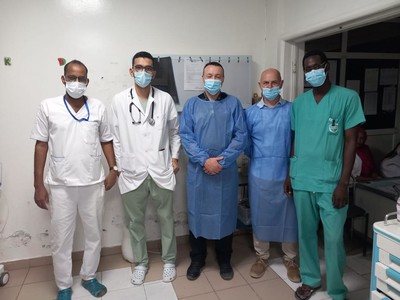
Masked medical team with Dr Dave Fearon (second from right).
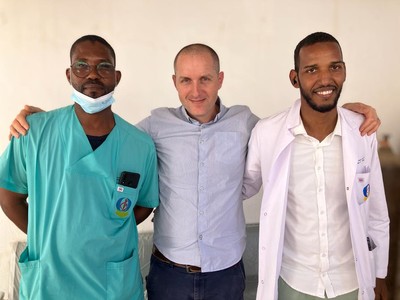
Mahloud, Dave, and Mohammed Elyatt pose for a photo.
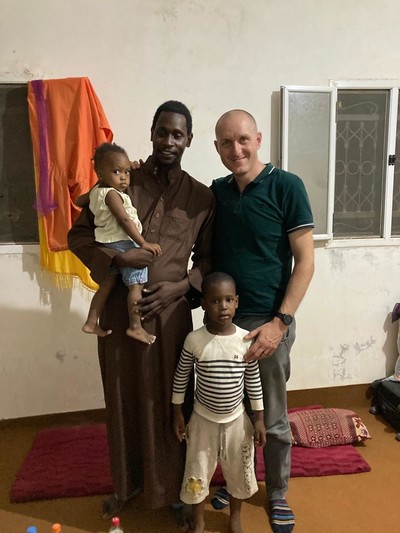
Pleased to see colleague Ndiaye and his family again.
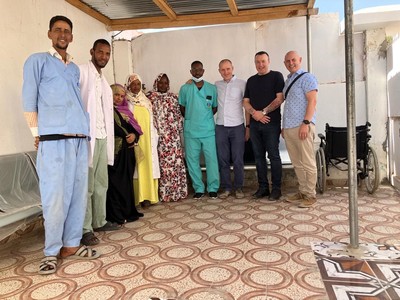
The multi-disciplinary palliative care team!
Welcoming New Trustees to Cairdeas IPCT!
![]() Hannah Ikong
Hannah Ikong
![]() 8th December 2023
8th December 2023
We are pleased to announce new trustees who have joined Cairdeas International Palliative Care Trust! Keep an eye on our Who We Are page for updates to our trustee board and staff.
Our new trustees include the following:
Marie Fallon
Marie Fallon (MD FRCP(Glas) FRCP(E) MRCGP DCH DRCOG) is Professor of Palliative Medicine at the University of Edinburgh and is an Honorary Consultant in Palliative Medicine based at the Edinburgh Cancer Centre. She has played a significant role in research both nationally and internationally. She has led international palliative care guidelines such as ESMO for cancer pain and ASCO for cachexia. She has been Joint Editor of four editions of the Oxford Textbook of Palliative Medicine which is the reference textbook in the specialty.
She has edited several other books and sits on numerous grant committees, as well as being an editorial board member of the BMJ Supportive and Palliative Care. Finally, of note, much of her research in recent years and currently relates to Low and Middle Income Countries (LMICs). She strives to help with the thorny issue of opioid availability in LMICs.
David Knight
David is a retired orthopaedic surgeon, he worked in Aberdeen from 1990. He is a born and bred Scot, but in 2011 he moved to China to work with a Christian NGO. He tried with limited success to learn Chinese and then taught foreign medical students and Chinese doctors in a big city in South-west China.
He returned to Scotland in early 2020, and soon entered lockdown. He was a Cairdeas Trustee in the early years and has now returned to the fold. He is busy with the leadership team of his local church and loves to travel and to read, sometimes at the same time.
Marian Morrison
Marian trained in Obstetrics in Glasgow and served in a Christian Hospital in Pakistan for many years, latterly as Hospital Director.
Whilst she does not have experience in the field of Palliative Care, she does have cross cultural experience and a working knowledge of the kinds of communities Cairdeas is aiming to facilitate training and delivery of care. She is excited to join the team of Trustees, learn more of this worthwhile ministry, and contribute to the organisation.
Margaret Sutherland
Professor Margaret Sutherland, PhD is Professor of High Ability Studies and Inclusive Practice and is Director of the Scottish Network for Able Pupils at the University of Glasgow, Scotland, UK. She is a Fellow of the Royal Society of Arts. She has 42 years teaching experience in mainstream primary schools, behaviour support and latterly in higher education.
She is interested in social justice and issues relating to poverty and the role of formal and non-formal education in creating more just societies in the global north and south.
"Having lived in Lenzie," she writes,"I have known Mhoira for over 30 years and so have seen first-hand the development of Cairdeas and the difference it has made in many parts of the world. I’m honoured to bring my experiences in Higher Education to the board."
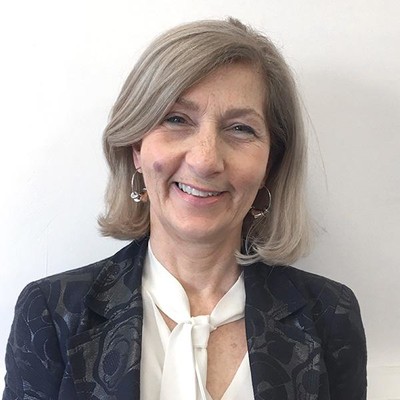
New trustee, Prof Marie Fallon.
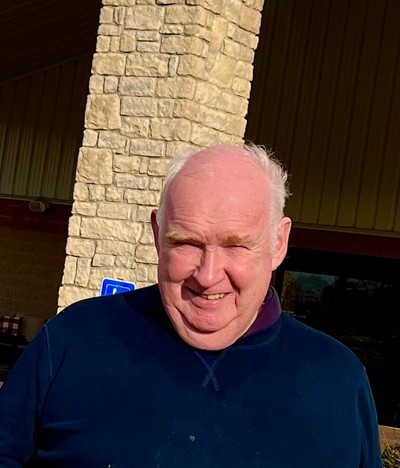
Returning trustee, Dr David Knight.
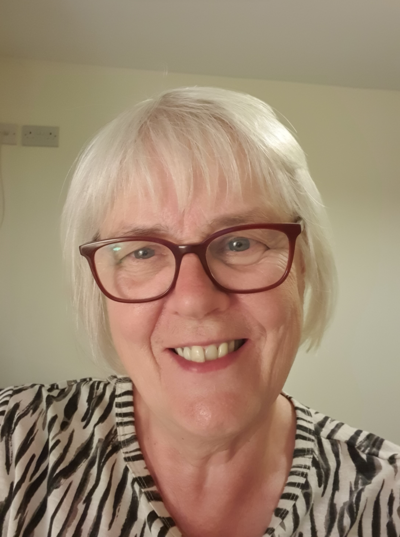
New trustee, Dr Marian Morrison.
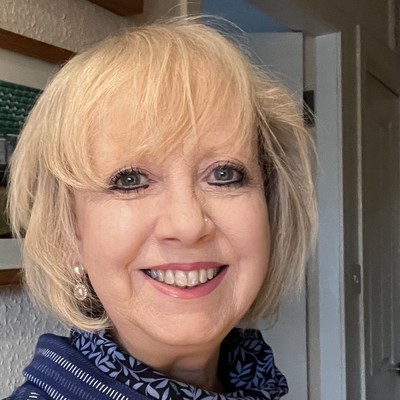
New trustee, Prof Margaret Sutherland.
Reflections on this Advent Season for Israel and Gaza
![]() Dr Mhoira Leng
Dr Mhoira Leng
![]() 5th December 2023
5th December 2023
At this time of the year in the UK the nights are ‘drawing in’ and there is the white sparkle of frost in the mornings. The season of Advent has started and Christmas soon to be celebrated.
Yet in Bethlehem, at the heart of the Christmas story, the celebrations are cancelled this year. Across this beautiful land people are in fear, sorrow, and pain. We sing the beautiful hymn O Little Town of Bethlehem whose words seem so apt right now: ‘Yet in thy dark streets shineth the everlasting light; the hopes and fears of all the years are met in thee tonight.’
Very movingly Rev Munther Isaac shows us the nativity in the Lutharan Church in Bethlehem. A baby in a manger but in the ruins of a bombed building, separated from his parents. The shepherds and wise men cannot approach. God is under the rubble and it is from this place of real suffereing and anguish that we cry out for hope at this Advent time.
Our focus in Cairdeas is in Gaza, where we have been working with partners for 10 years, and on the unfolding horrors of the humanitarian crisis. We should have been there celebrating the graduation of the very first Professional Diploma in Pain and Palliative Care at the Turkish Palestine Friendship Hospital as well as our annual course for undergraduates within the Islamic University medical school. Instead we hear from our colleagues and friends increasingly awful and at times desperate message which can’t begin to contain the horror and loss. You, perhaps, have been finding it difficult to watch.
Listen with me to our palliative care colleagues and hear their words as I share some of the realities on the ground. I have also worked with our International Faculty to write a Statement of Solidarity and you can see the detail below. This is a personal statement from colleagues and not organisational.
Now the cancer hospital is closed with a small number of children being evacuated but for the majority there are no treatment options. Analgesia is almost absent for chronic illness but also for burns and crush injuries. Disease outbreaks, starvation and unclean water are causing outbreaks of disease and reveal the unfolding public health disaster. Public hospitals remain in southern Gaza; European Gaza Hospital and Nasser paediatric Hospital; both vulnerable to the resumption in bombing.
The courage of our healthcare colleagues is humbling. Many have moved five or six times to try to stay safe and many have lost their homes. All have lost family members, and all are trying to balance caring for their family while continuing to offer support for patients.
Our colleague, Dr Hamman Alloh, a nephrologist, spoke in an interview of why he is staying with his patients - ‘What would happen to my patients? We are not animals that do not deserve healthcare. Did I train for 14 years in medical school and speciality training to abandon my patients now?’ This was Dr Hammam’s last interview before he was killed in his home by a missile strike. His head of internal medicine at Al Shifa Hospital, Gaza’s hub for healthcare, Dr Rafaat Lubbad, an inspirational colleague who was an advocate for palliative care, was killed shortly after along with his family.
We are losing the healthcare wisdom of the past, the leaders of the present and the promise of the future.
Dr Khamis Elessi, the lead for palliative care in Gaza and our dear Cairdeas partner, published a letter in the Lancet in the first week of this crisis, warning of the grave consequences we are now seeing - ‘If the massacre continues on its current path, we will be dangerously close to witnessing a large-scale genocide of civilians and patients. I am a doctor in Gaza, and I want to survive for my family and for my patients.’
Our palliative care colleagues continue to send messages from Gaza when they can:
‘'We are physically ok, but mentally and emotionally so far from being alive. We die hundreds of times every day. Each and every one of us has lost at least a relative, a friend, a colleague or more. God help us all.' Doctor.
‘The situation here in Gaza is worse and more difficult than what is reaching you. The occupation demolished homes, streets, schools, hospitals, churches, and healthcare centres. They cut off electricity, water, and all the necessities of life. My hope is to die with all my children and not leave them and them not leave me. I cannot live without them, and I do not want to die and leave them here in this unjust world.’ Cancer nurse.
‘Unfortunately, we are on our way to collapsing from the horror of the scenes we see, despite our strength; but it is beginning to fade and the world is watching as if we were in a movie theatre showing a horror movie and the viewers are silent.’ Paediatric doctor.
‘We need you and your colleagues to reach our scene of massacre to all the world. We trust you. Please be our voice outside. Gaza, the beautiful city which you knew and loved, it has become city of ghosts. All its buildings, streets, schools, trees completely destroyed. We are without any life support, and supplies. Many people are still under the collapsed building ask for help, many health workers are killed while they offer their duties. ‘The world became blind and deaf to our suffering. We don't ask more than life with peace and dignity like all people over the world and to be considered human beings.’ Pharmacist.
You can see the request from our group of Gaza clinicians by clicking on the link HERE.
As I write this I am reminded once again of that great Advent hymn ‘O Come O Come Emmanuel.’ Sung in some form for 1200 years with a Latin form in the 12th century and this version written in 1851. It has inspired many down through the ages with its message of hope, its message of the presence of God in our times of trouble and in our times of joy, of peace and justice for all.
I will be singing these words more fervently than usual and wishing each of you joy and peace at this in this season and hope for 2024.
O come thou Dayspring from on high, and cheer us by your drawing nigh. Disperse the gloomy shadows of the night and deaths dark shadows put to flight. Rejoice, rejoice Emanual shall come to thee.'
“O come, O King of nations, bind in one the hearts of all mankind. Bid all our sad divisions cease and be yourself our King of Peace.” (O Come O Come Emmanuel)

Jesus in the Rubble: Christmas Nativity scene shared recently by Rev. Dr Munther Isaac.

Robin pictured in the wintertime, all photographs from the Medical Director Dr Mhoira Leng, unless specified otherwise.

Holy Family mural in Bethlehem.

Crocuses blooming after a cold winter's frost.

Shepherds Church candles shine brightly in Bethlehem.

Sunset taken in Uganda.
